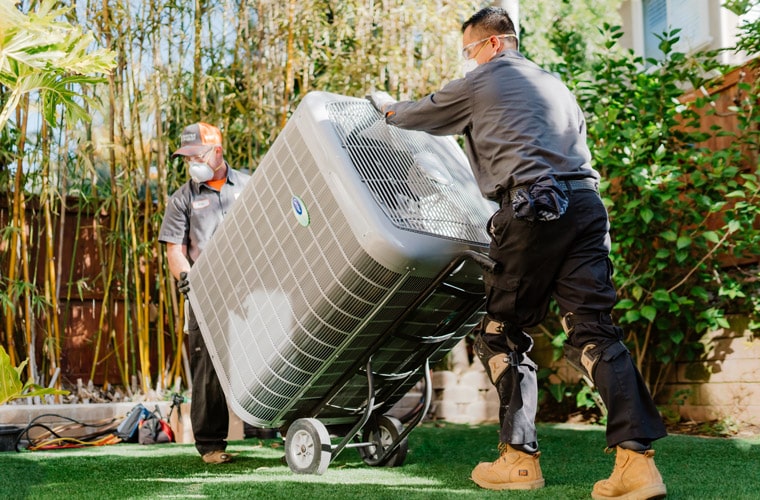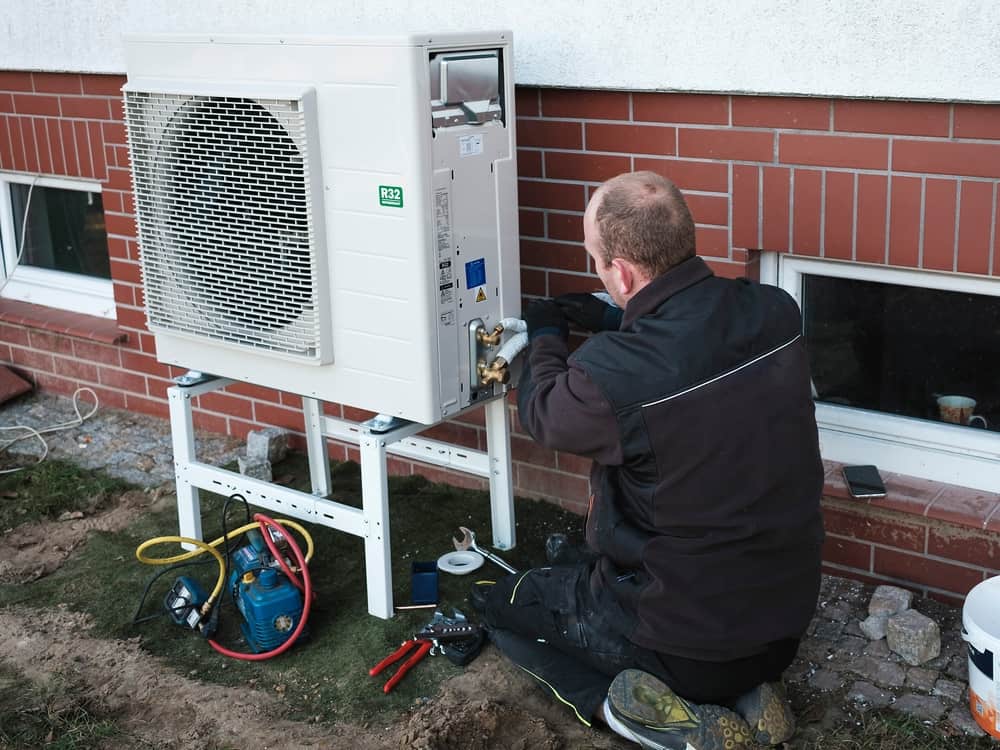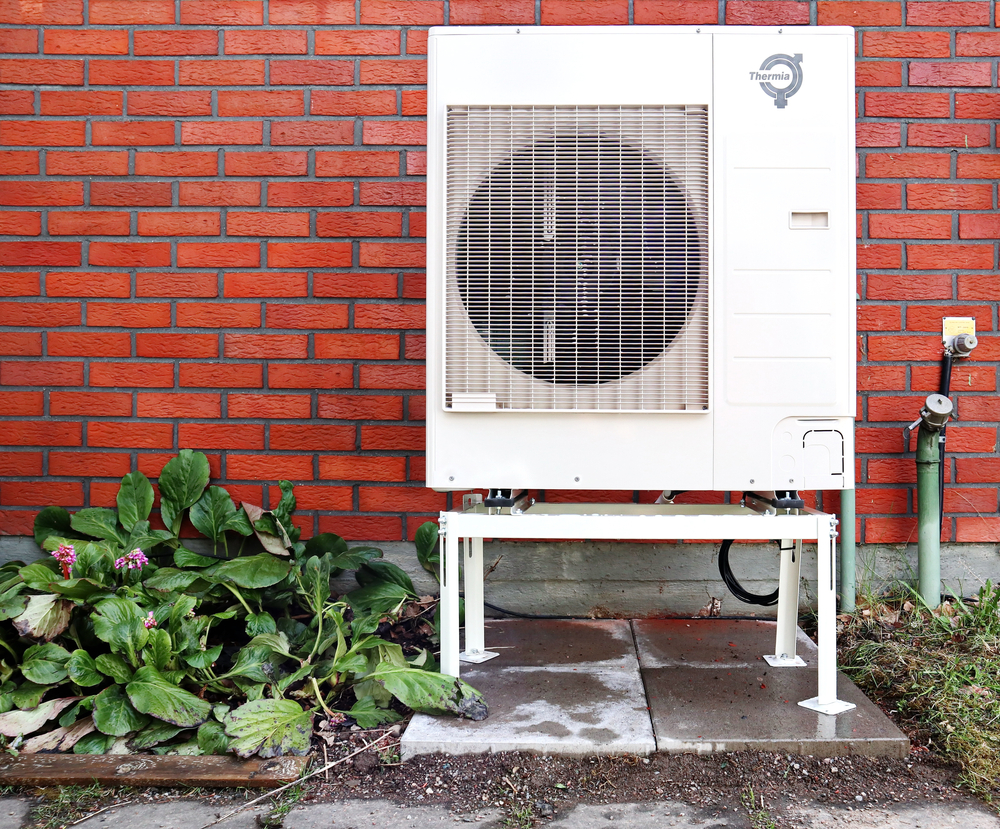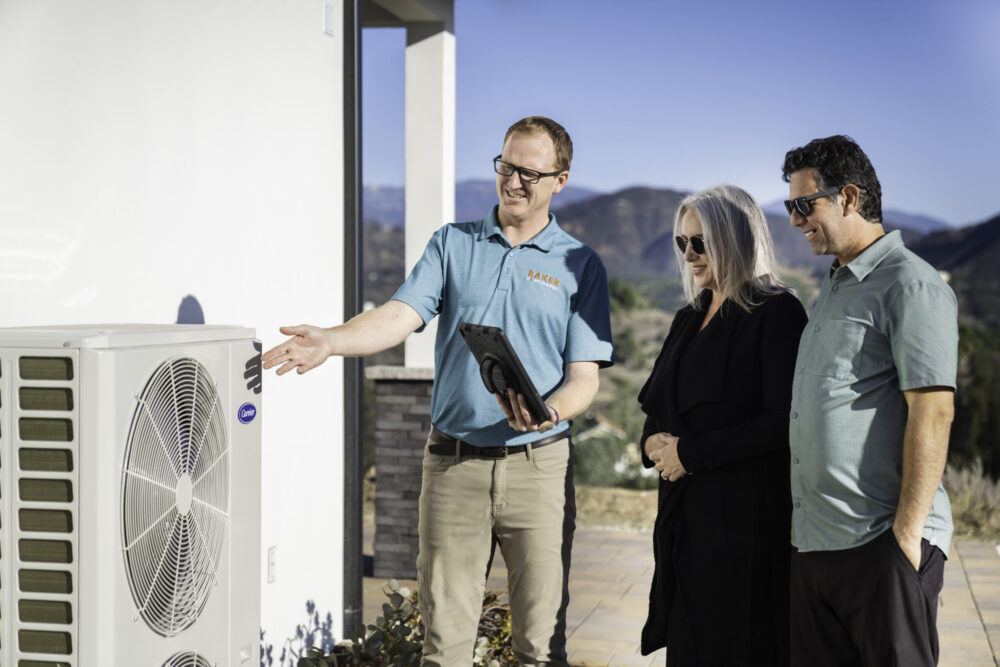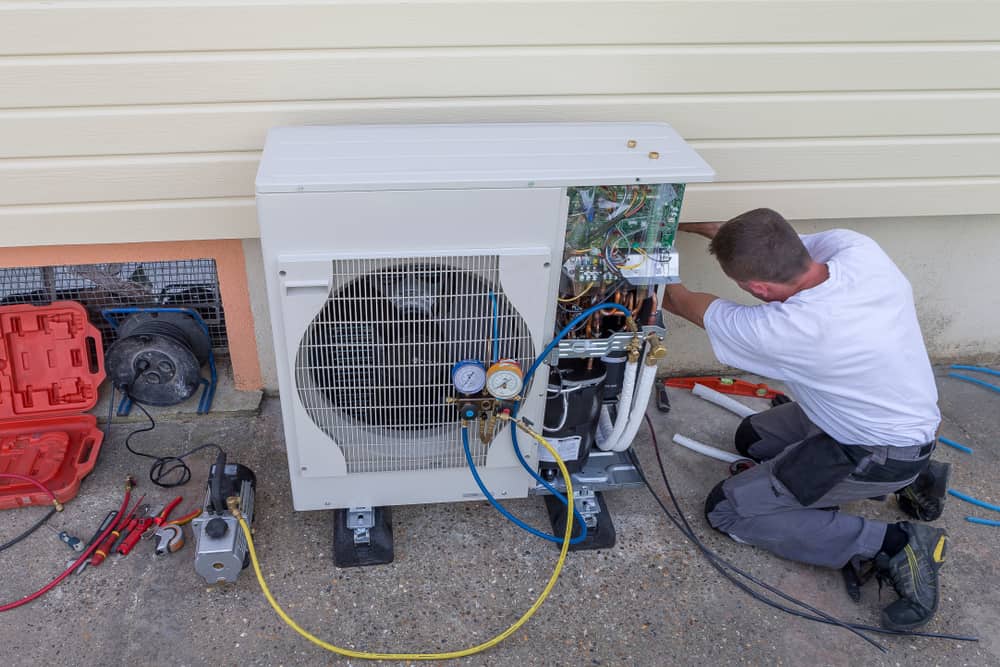
Southern California homeowners have multiple options from which to choose for air-conditioning solutions, including central air, split systems, mini-splits, window units, and even fans. While these systems can all be used to cool a home, they are primarily heating devices.
For example, while few people think “heat pump” as a home cooling solution, it’s definitely an efficient (and affordable) way to cool your house. And, if your home is already equipped with a cooling system, it’s never too early to start thinking about efficient ways to heat your home when the weather grows cooler.
With the rising costs of SoCal utilities in mind, this post explores air source heat pumps and how they can possibly be more than 100 percent efficient.
The Basics of Central Air Conditioning and Heat Pumps
- Evaporation
Air conditioners cool down a home by drawing the inside air across an evaporator coil within the home. Similar in appearance to a car’s radiator, this device is filled with liquid refrigerant, which draws heat from the air. As refrigerant cools the air, the liquid heats up and vaporizes. Or rather, it evaporates, hence the name, “evaporator coil.”
- Condensation
The refrigerant vapor then flows to the air conditioning system’s outdoor portion, which contains a condensing coil. This coil pressurizes the refrigerant, forcing it back into a liquid state. The heat it contains is transferred from liquid to coil, and then dissipates into the outdoor air across the large surface area of the condenser coil. The (re)condensed (liquid) refrigerant flows back inside the home to repeat the process in a continuous loop that effectively and substantially cools the air inside a home compared to the outside environment.
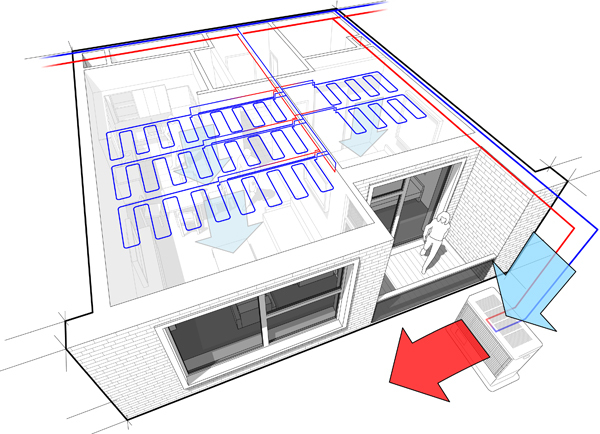
In effect, air conditioners transfer heat using the process of evaporation (liquid to air) and condensation (air to liquid).
Heat pumps work on a similar principle by transferring heat from one location to another. The major difference between the two is the energy flow: while central air conditioning uses a one-way flow of energy—from a home’s interior to its exterior—heat pumps flow in both directions. They have the capacity to heat and cool a home. This enables heat pumps to operate at greater efficiency, when compared to traditional home heating systems like natural gas, fuel oil combustion, boilers, electric-forced-air, or heating strips.
How Heat Pumps Can Be More Than 100% Efficient
Energy Efficiency
Efficiency is typically measured as a percentage. Out of the total amount of energy we put into a system, only a certain percentage makes it through the system to turn on the light bulb, or to perform some other task. For example, when we turn on a television or computer monitor, only a percentage of the electricity from the wall outlet turns into light emitted from the screen. The rest is lost to heat. The same energy loss occurs in home heating systems.
Conversion: Heat Inefficiency
Traditional forms of heating convert some type of energy into heat to warm a home. Combustion furnaces typically burn natural gas or fuel oil. Electric heating strips and space heaters use electricity to heat an element, then use radiant heating to warm the surrounding air.
This method wastes potential energy, because radiant heat warms more than just a home’s air. Any additional energy that could otherwise warm the home is lost instead through exhaust systems and leaks. No matter how well designed the system, homeowners receive less energy as heat than the amount of energy required to generate it.
Transfer: Efficiency Exception
The same is not true of air source heat pumps. They simply use the energy put into the system (turn on via electricity) to concentrate available heat energy from air in the surrounding environment, and transfer it wherever it’s needed. In ideal circumstances, a heat pump can transfer up to 300 percent more energy than the electricity required to power it.
When most people think of home heating, they think of furnaces, electric heaters, or boilers. However, if you take a closer look at the options available while keeping energy bills in mind it’s obvious that heat pumps are the heating and cooling systems of the future.
Heat pumps are more than 100% efficient because they don’t
convert energy—they simply transfer it.
Heat Pumps vs. Furnaces and Boilers
Aside from heat pumps, homeowners typically install one of three common alternative systems: furnaces, resistive electric heaters, and boilers. The first two work by heating air to circulate throughout the home, while boilers use heated water.
In each case, however, the heating process itself (conversion) is not completely efficient. In the case of furnaces and boilers, the combustion process can never reach 100 percent efficiency: some heat is lost to the outside instead of passing directly into the water or air.
The same is true when any heat-carrying material—usually water or air—is moved throughout the home. Air loses some heat to the ducts it travels and the water in boiler pipes loses heat as it moves through radiators.
Again, for heat pumps—whether you use a regular heat pump or a mini-split system—the same energy loss does not apply.
Learn More About Heat Pump Benefits for Your Home
If you’re looking to upgrade your home heating or cooling, it may be time to consider a heat pump that can provide both heating and cooling. It definitely helps to work with professionals who know that “magic” is not the reason heat pumps are more than 100% efficient.

